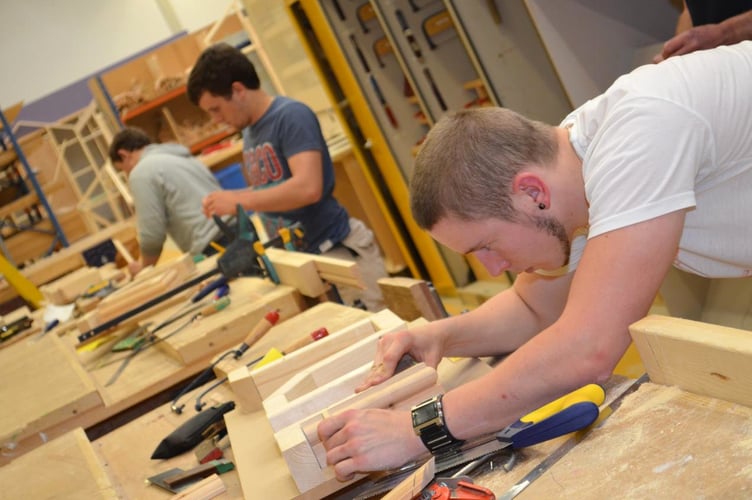I have just visited South Devon College, and every time I pass through reception I am blown away by the scale of the college, its modernity, its relevance and the desire of students to pick up new skills while passing core subject exams.
The scale of South Devon College should not be daunting, but rather a reflection of the nature of further education and the skills needed by the next generation. The college teaches everything from beauty skills to tourism, hospitality service to boat building, to how to become a fisherman, plumber, electrician or mechanic.
South Devon College is the jewel of further education colleges in this country. Laurence Frewin and his team do a remarkable job to create excellence at every level and it is only right that Governments of every colour continue to support these vital powerhouses of training and education.
At the two careers fetes that I have held on-site, I have marvelled at how students from other parts of South Devon have become wide-eyed and enthusiastic about not following the old path to university but learning a skill, training on the job, taking up an apprenticeship and being paid to do it. The tried and tested path of school, university and job, is not the only route that should be extolled.
In Germany, the model is far more flexible to the needs of students and provides grammar schools, academies and further education colleges (aka technical schools) with pupils being able to move between the three models as they see fit. Such flexibility means students are graduating in their chosen field, are more prepared for their futures, and can take on jobs with the skills and learnings they have acquired.
In the UK, the Government has done a staggering amount to enhance skills and training within our places of education not just for students, but those looking to change their careers.
For students, we have introduced the Advanced British Standard, a baccalaureate-style qualification to see that British children succeed in a competitive world of work. Bringing together A-levels with T-levels into a new single qualification, guarantees academic and technical education are on an equal footing, and ensures our students are not just competitive, but innovative and creative.
Beyond new qualifications, there has been a significant uplift in the investment of the apprenticeship system to £2.7bn by the end of this year, meaning more people than ever will be able to receive high-quality training while on the job.
This is particularly important as a further 20,000 apprenticeship places have been created. The Government has committed to fully funding apprenticeships in small businesses from April by paying the full costs of training for anyone up to the age of 21 and increasing the amount of funding that employers paying into the apprenticeship levy can pass onto other employers.
These measures are expanding opportunities and supporting businesses to hire and train.
This country has a proud history of creating inventors, engineers, and mechanics and there is no doubt in my mind that we can do so again.





Comments
This article has no comments yet. Be the first to leave a comment.